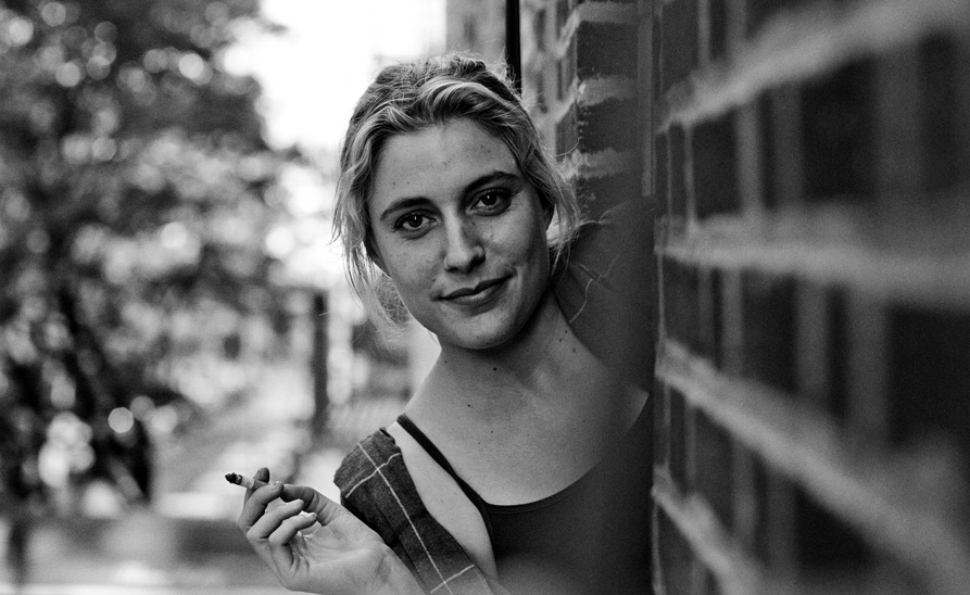
Greta Gerwig has had quite a year. Her solo directorial debut Lady Bird (2017) became the best reviewed movie in Rotten Tomatoes history while passing last year’s Best Picture winner Moonlight (2016) to become A24’s highest grossing film. Gerwig has also made history by becoming only the fifth woman ever to have been nominated for the Academy Award for Best Director, where she was also nominated in the Best Original Screenplay category.
Reflecting on this pivotal and groundbreaking moment in Gerwig’s career, it is the perfect opportunity to revisit the film she co-wrote with her frequent collaborator and real life partner, director Noah Baumbach: Frances Ha (2012). Gerwig plays the titular role in the film: a twenty-something woman living in New York whose ambition it is to become a dancer.
It is easy to fall in love with the infectious and endearing spirit captured in Frances Ha. It is an absolute joy from start to finish. Repeat viewings of the film, which at first could be dismissed as light and cliché, reinforce the complex character study which Gerwig and Baumbach have created. The film is about friendship, love, being young and having ambitions but it also explores themes of loneliness, failure and betrayal.
This list will demonstrate the ways in which Frances Ha is successfully crafted and how this makes it one of the best independent films of the 2010s.
5. New York, New York
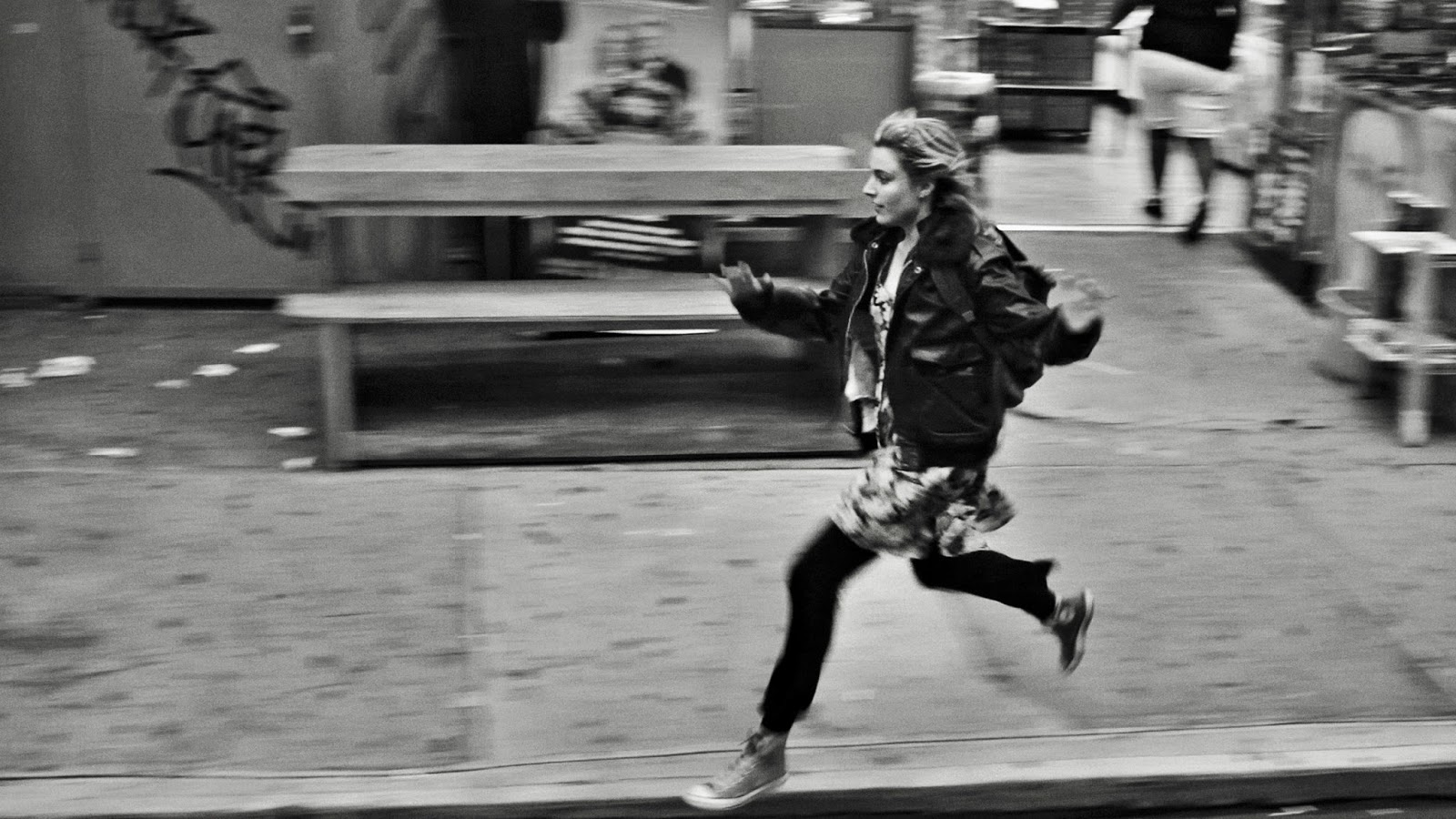
From Manhattan (1979) to the HBO series Girls (2012-2017), New York has become a city regularly captured in film and television. In Frances Ha, New York becomes an integral part of Frances’ narrative as she struggles to stay afloat in the city.
There is a real sense of New York as being essential to Frances’ story. The way the city is captured on screen means that it becomes its own character in a way. Frances feels at home in New York even though title cards are displayed on screen whenever Frances changes her address to reinforce her chaotic and precarious living situation. She moves regularly and is without a steady job throughout most of the film.
However, when she visits Paris spontaneously alone she expected it to be an exciting and romantic getaway when in reality all she wanted was to be back at home in New York.
Baumbach chose to shoot the film digitally, for the first time in his career, but he also decided to evoke the cinematic style of older films by having Frances Ha be completely in black and white. Baumbach has expressed his keen interest in the style of the French New Wave which inspired many filmmaking decisions behind Frances Ha, including the black and white film look and the score.
The film’s director of photography, Sam Levy, went on to shoot Lady Bird with Gerwig after working with her regularly on other projects. Frances Ha remains particularly reminiscent of classic films and their style through its romantic and melancholy cinematography captured by Levy, which is both beautiful and gritty in showcasing New York.
The simplicity evoked through the use of long takes captures the real chemistry between the actors on screen without the use of unnecessary cuts. This all enables Frances Ha to look and feel natural and in the moment, while still evoking a cinematic quality of the past.
4. A spectacular soundtrack

When paired with the nostalgic black and white imagery of Frances Ha the score adds to the romantic mood captured on screen. The film features music from films of the French New Wave, including music by French film composer Georges Delerue. This classic score is mixed with upbeat and modern pop songs from the likes of David Bowie, T.Rex and Paul McCartney as the old is expertly blended with the new.
The music is important to the narrative and becomes integral to specific moments in the film. The romantic score is used in a scene when Frances meets Sophie from work so they can eat lunch in the park together. This moment is an everyday, relatable event which becomes romanticised through the addition of the score.
Frances’ infectious spirit and energy is captured most obviously in the scene where she runs through the streets of New York with David Bowie’s “Modern Love” blaring. Baumbach’s admiration for the French New Wave is exhibited again with this being in homage to an iconic scene from Leos Carax’s Mauvais Sang (1986).
In the scene the protagonist runs and leaps through the streets of Paris while thinking about the love of his life. However, Frances’ version is detached from this experience of romantic love and is more about living in the moment and experiencing intense joy and happiness.
Baumbach succeeds in directing scenes set to music which almost feel choreographed yet still remain natural and real.
3. Greta Gerwig’s charming and endearing performance as Frances
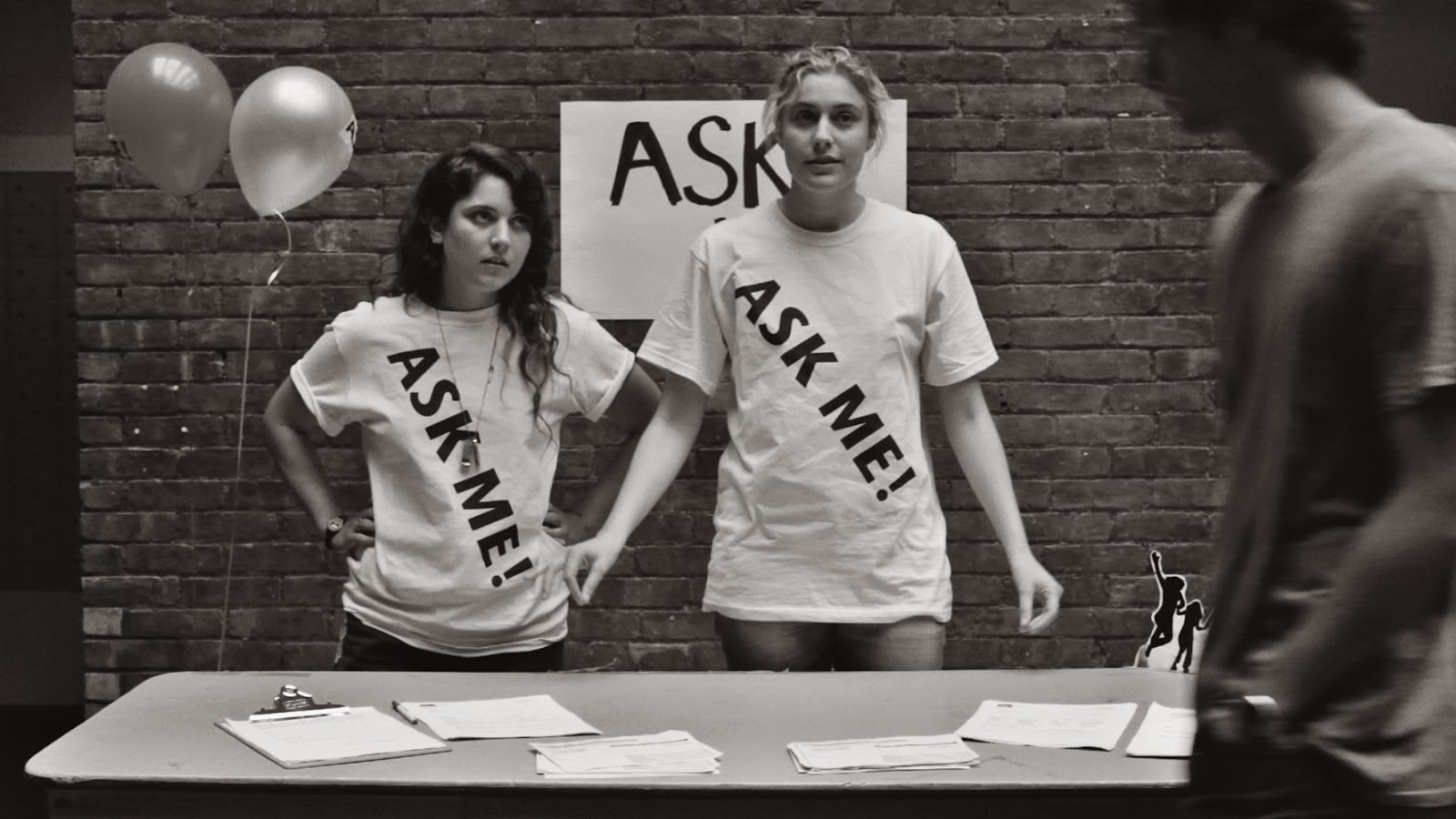
There is a real ease and naturalness to Greta Gerwig’s performance as Frances. The film is very much a character study and Gerwig is brilliant in the role as you believe this young woman’s struggles while she remains content to drift through life.
Gerwig’s use of physical comedy is particularly memorable. Frances’ clumsiness is all the more absurd due to her ambitions of being a successful dancer yet Gerwig carries off this concept and makes it seem genuine and real. Her funny and livewire nature provides memorable moments like when she receives a tax rebate and calls Lev, played by Adam Driver, to take him to dinner. The dinner ends with the embarrassment of Frances’ card not working so in a comedic sequence she nonsensically runs through the streets to find a cash point, rather than giving in and letting Lev pay.
Its charming moments like these which elevate the film. One of Frances’ roommates called Benji, played by Michael Zegen, has a joke where he repeatedly refers to her as “undateable”. But it is important that it is not part of the narrative that Frances is necessarily looking to be dateable. She’s just being her original and unique self.
Gerwig is the perfect choice to capture Frances’ infectious spirit and energy and it is a joy to behold a film capturing a specific time in a young woman’s life that is relatable, funny and meaningful.
2. The “What I Want” Monologue
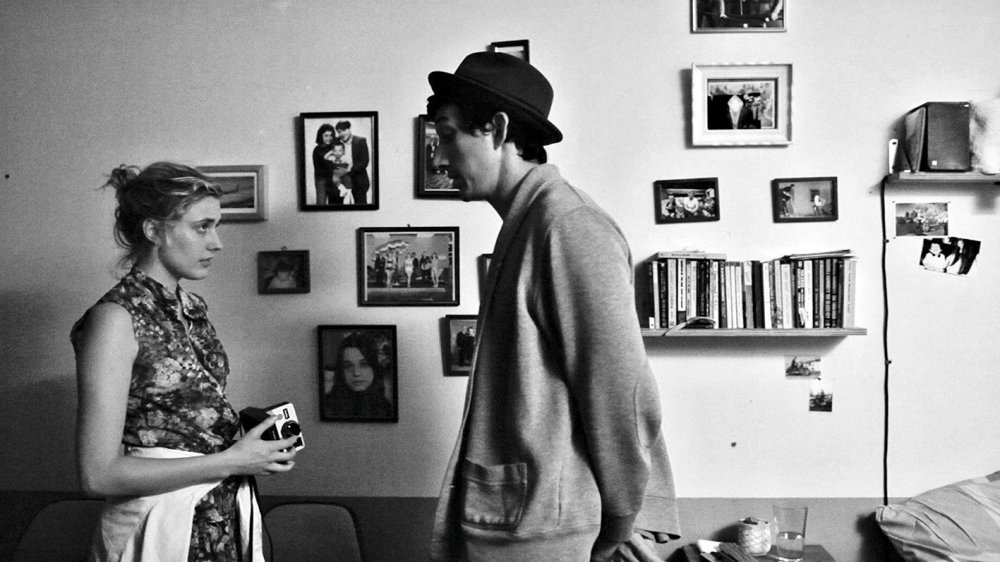
“It’s that thing when you’re with someone, and you love them and they know it, and they love you and you know it… but it’s a party… and you’re both talking to other people, and you’re laughing and shining… and you look across the room and catch each other’s eyes… but – but not because you’re possessive, or it’s precisely sexual… but because… that is your person in this life. And it’s funny and sad, but only because this life will end, and it’s this secret world that exists right there in public, unnoticed, that no one else knows about. It’s sort of like how they say that other dimensions exist all around us, but we don’t have the ability to perceive them. That’s – That’s what I want out of a relationship. Or just life, I guess.”
The setting is a dinner party where Frances doesn’t know anyone apart from the dancer she’s staying with while she finds somewhere to live. Frances is awkward during dinner and begins to feel lost after she learns from people she doesn’t even know what her best friend Sophie is up to.
The monologue begins and the camera stays focused on Frances’ face and she opens up to these complete strangers. She’s the odd one out in this setting and Frances’ energy and spirit in this moment is what brings this monologue alive. The way the monologue is written is natural with long sentences where Frances is desperately trying to put across her detailed thoughts in a coherent way. Gerwig’s acting ability is proven in this scene and it’s truly special when the romantic score starts playing halfway through which adds to the cinematic quality of the scene.
This monologue is about Frances’ acceptance and progression. She is quick to leave and uproot herself after this scene and when she goes she leaves a lasting impression. In a quick impulse she decides to go to Paris alone and it is this gradual acceptance of herself and her friendship with Sophie which is what Frances Ha is about.
It is refreshing for a film about a young woman in her twenties not to be about whether she will or won’t end up with a guy. It seems at first glance that this monologue would just be about a sexual relationship or connection, but really it is about friendship.
This scene is the most important in the film when considering how it connects to the last scene with Sophie when they look across the room at one another and the encounter described within this monologue occurs in real life.
When she’s asked who she’s making eyes at across the room, Frances replies: “That’s Sophie. She’s my best friend.”
1. A study of female friendship
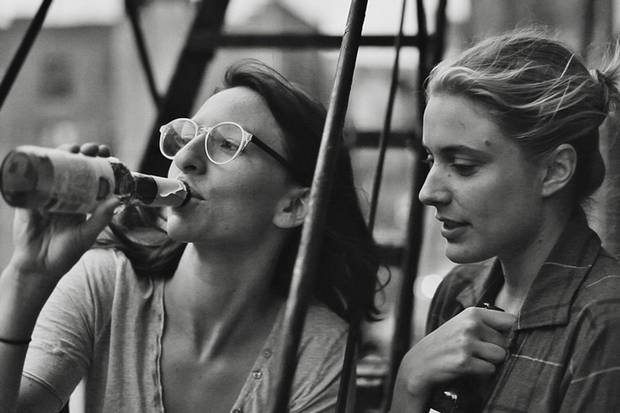
“Tell me the story of us…”
When exploring the “What I Want” monologue through the lens of female friendship and how Sophie is that one person for Frances by the end of the film, Frances Ha succeeds in coming full circle.
During the opening montage of Frances Ha, Sophie and Frances are more often than not sharing the frame and they are captured on screen together as a unit. However, this changes when Sophie informs Frances of her decision to move into a new apartment with Lisa. The camera begins to visually inform the viewer of the distance between the two friends emerging by having them begin to be shown on screen in separate frames.
Later on in the film Frances is shown alone in the frame while Sophie is shown with her boyfriend Patch instead. Baumbach and Levy use camera framing throughout Frances Ha to demonstrate this journey from closeness to being separated very subtly. This comes full circle by the end of Frances Ha as Sophie and Frances go back to being in the same frame as one another when they are reconciled.
It is important that the initial opening minutes of Frances Ha introduce Frances with Sophie instead of Frances alone. By showing a realistic female friendship on screen, friends just hanging out and not just talking about who’s going to get the guy, Frances Ha subverts moments which are usually reserved for couples in films, for example Sophie and Frances watching a film and going to sleep in the same bed. When they’re smoking on the window ledge of their apartment, Frances remarks “We are like a lesbian couple that doesn’t have sex anymore.”
Frances views Sophie moving out of the apartment and her wanting to be with Patch as a betrayal at first but the film shows her development as to how she reaches an understanding that this is normal. There are obstacles in the way of Frances’ personal and professional development which impact on her friendship with Sophie. However, this complex exploration of friendship is what grounds Frances Ha in the real.
By the end of Frances Ha, Frances has achieved success in her life and she is no longer stuck. She has an office job, she choreographs her own dance routine which all her friends come to watch and she has a place to call home. The film’s ending with the ‘Frances Ha’ sign marking her move into her own apartment space is a poignant and fulfilling ending to a story for a protagonist it is hard not to fall in love with.
Author Bio: Hannah Sayer is a recent English Literature graduate who loves watching and writing about cinema. Some of her favourite directors include Jane Campion, Denis Villeneuve and Nicolas Winding Refn.